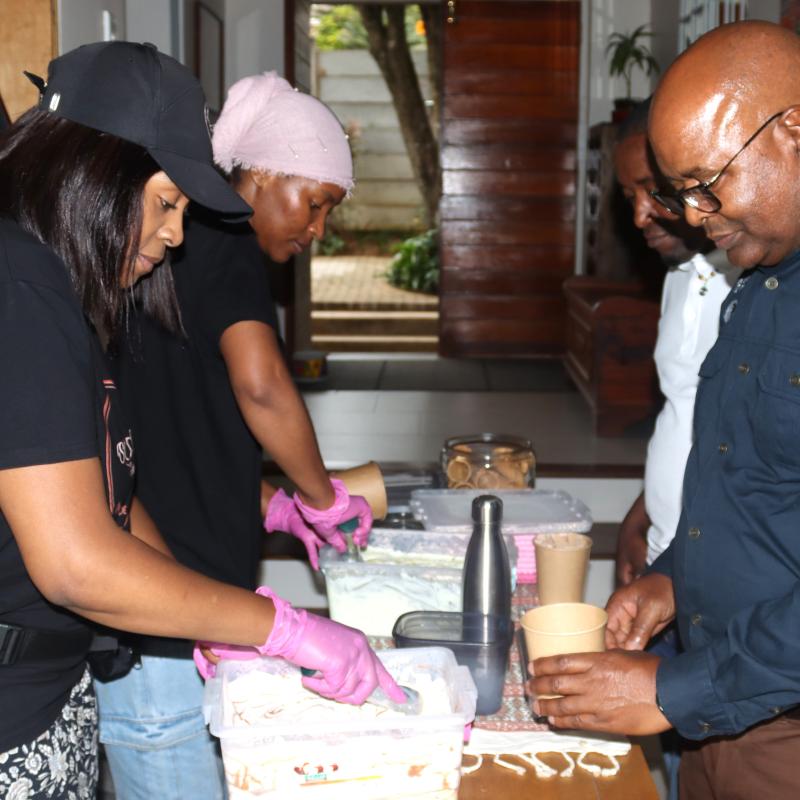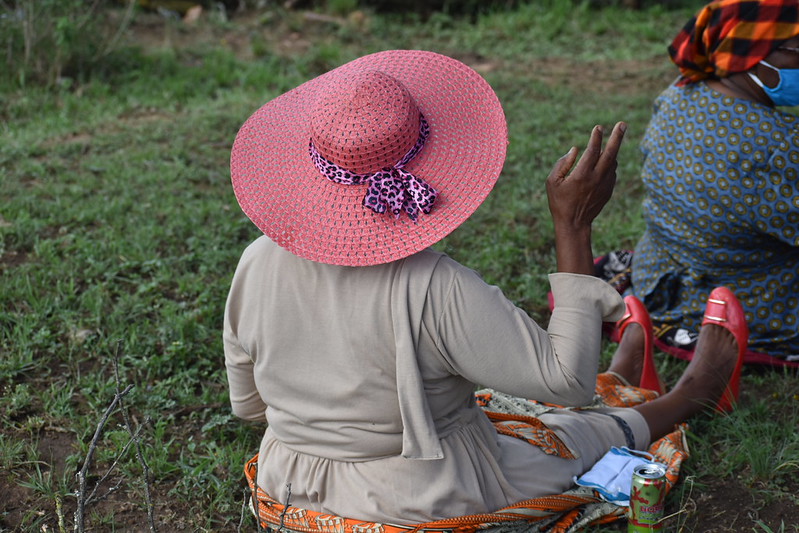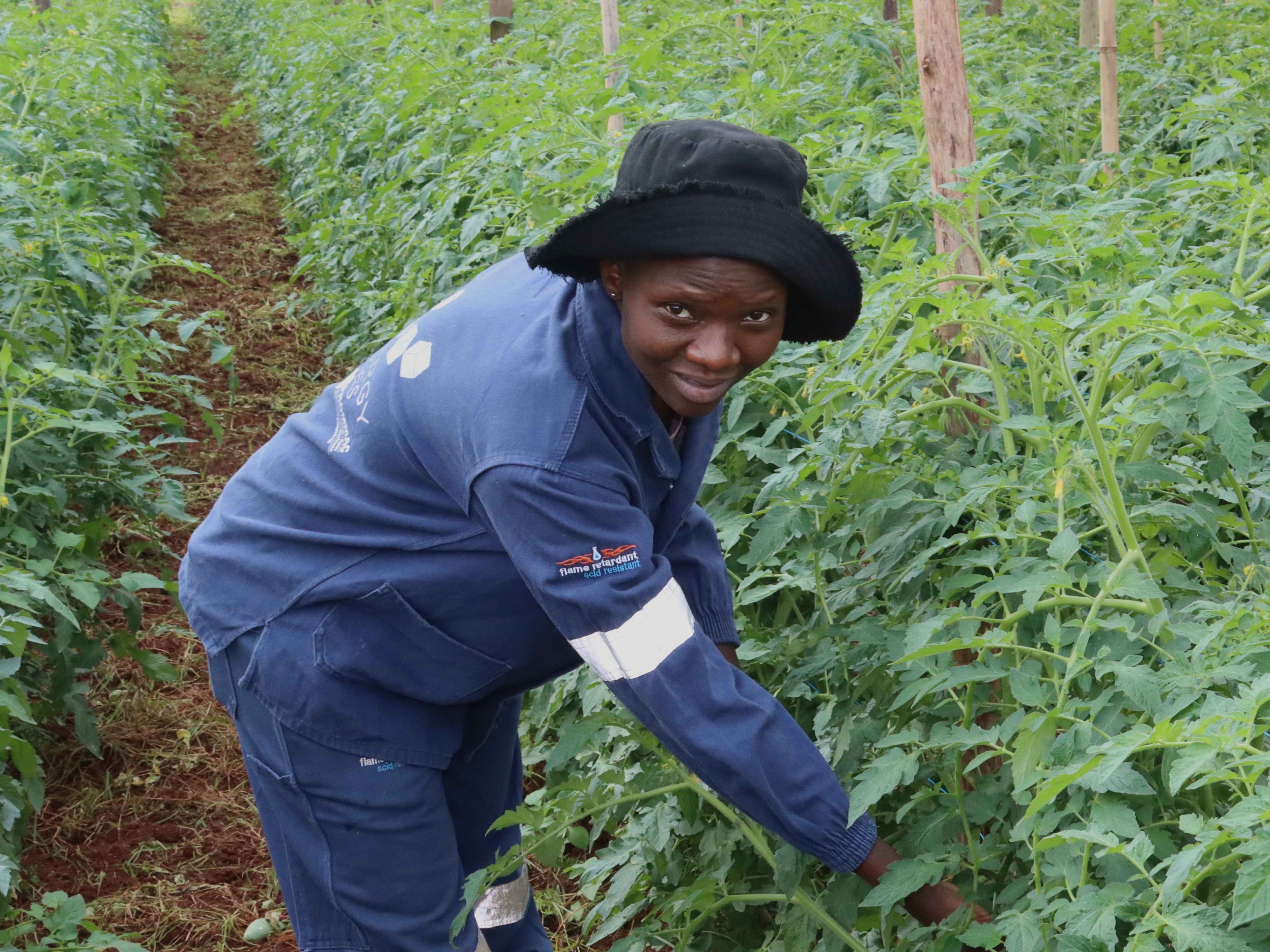Eswatini’s Private Sector Powering Progress Toward the SDGs

From the bean and sugar fields of Lubombo to the buzzing tech hubs of Mbabane, entrepreneurs are shaping Eswatini’s development journey. One such venture is "Scoops N Giggles,” a small, local ice cream business. The business was set up in 2020 by best friends Zandile Mabaso and Lee Mashwama. When Mashwama developed a sweet tooth during her pregnancy, Mabaso began experimenting with ice cream recipes using fresh fruit from her father’s farm. The venture has been a long-held dream, serving as a gateway to new economic opportunities and a more prosperous life for both women.
Yet, growing this business has had its unique challenges: ensuring high-quality products, reaching customers, finding retailers, and ensuring compliance with regulations, including food safety. Furthermore, obtaining standards certifications from local authorities in Eswatini can be particularly expensive, due to the country’s reliance on South African testing facilities, which often pose barriers for local Micro, Small and Medium-Sized Enterprises (MSMEs), limiting entry into markets.

The UN in Eswatini, along with the Government, rose to the support of this small enterprise, helping the founders demystify rules and grasp the regulations, access the proper support for compliance, meet international standards and expand their business beyond Eswatini’s borders.
This is not just the story of an ice cream business. It is the story of Eswatini’s private sector: entrepreneurial, innovative, and determined to be the engine of national transformation.
Scoops N Giggles was one of 20 small businesses selected to participate in the Ingelo Local Certification Scheme. Launched in late 2024 by the Eswatini Minister of Commerce, Industry and Trade, the Honourable Manqoba Khumalo, and UNDP Resident Representative Henrik Franklin, this initiative aims to provide a trusted certification process to ensure product quality and improve MSMEs' access to mainstream markets.
The right action for the right policies
At the heart of this drive is the National Development Plan (2023-2028), which was given a new impetus by the outcome of the 2023 Sibaya (the traditional People’s Parliament), at which His Majesty King Mswati III declared poverty a national emergency. Focusing on the people’s concerns, he made a rallying call (Nkwe!) for leaders and partners to work together. For the United Nations in Eswatini, this call to urgency fully resonated with the United Nations Secretary-General’s global call to accelerate progress toward the Sustainable Development Goals (SDGs).
Investing in the private sector and MSMEs can offer solutions to some of Eswatini’s most pressing challenges: unemployment, high poverty rates, energy security and gaps in service delivery. For this to succeed, however, laws and regulations must support growth.

Doing business better
As the Government opens new doors to business, three key plans or tools are making a difference. Firstly, the Ingelo Local Certification Scheme helps entrepreneurs to meet safety and quality standards. Secondly, Eswatini’s implementation strategy for the African Continental Free Trade Agreement (AfCFTA) enables entrepreneurs to access continental markets and boost intra-African trade. Thirdly, the SDG Investor Map, a market intelligence tool, guides investors towards priority sectors such as financial, agriculture, renewable and alternative energy, infrastructure, healthcare and education.
The United Nations has steadily backed these three initiatives through technical support, capacity building and advocacy, helping Eswatini lay the groundwork for a stronger, more connected economy. Expanded Central Bank credit guarantee schemes are also making financing more accessible for small enterprises.
Businesses like Scoops n Giggles have been able to acquire required certifications more easily, regain market access and expand their business, reaching more customers with a more sustainable and resilient business model.
Together, these reforms are giving businesses the tools to compete, expand, and thrive, both at home and across the region.
Forging partnerships together
UN Resident Coordinator George Wachira, together with the Government of Eswatini, brings diverse stakeholders to the table to advance this vision collectively. “Today’s global crises are too large for any single actor to tackle alone,” he said. “The private sector is more than an engine of economic growth; it is a catalyst for transformation. Businesses drive innovation, deploy cutting-edge technologies, build skills, continuously improve efficiency, lifting people out of poverty and making money doing it.”

The United Nations works closely with the country’s business leaders through Business Eswatini (BE), a federation of businesses from across all sectors, representing approximately 80 per cent of the country’s private sector. Earlier this year, development partners, private sector representatives, government officials, and the UN team gathered to co-create the next United Nations Sustainable Development Cooperation Framework (UNSDCF) 2026-2030. One of the key milestones for this roadmap is engaging and empowering businesses for sustainable growth, creating opportunities for young Emaswati and exploring stronger partnerships.
Business Eswatini’s leadership has also recognised the value of this collaboration. President Mvuselelo Fakudze reflected on the alignment of business strategies with the UN’s vision as a key to unlocking Eswatini’s most urgent challenges. “Our success as businesses is deeply intertwined with the well-being of the communities we serve,” he said. This vital partnership continues to mobilise private sector resources in ways that align with national development priorities, connect policy priorities with market opportunities, and enhance Eswatini’s capacity to secure sustainable development financing.
Scoops N Giggles offers a model for other small businesses to follow. With the support of the UN and the Government’s leadership, the path is now opening for many more businesses to turn ideas into impact and profit, driving innovation, growth and opportunity across the Kingdom.
For more information about the UN's work in Eswatini, please visit eswatini.un.org.













